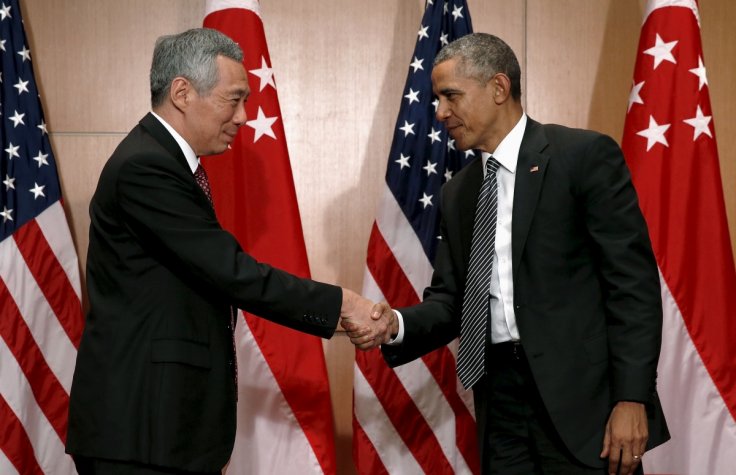
Heads of state of the Association of South-east Asian Nations (ASEAN), except Myanmar President Thein Sein, are attending the summit in California on Monday and Tuesday.
While the meeting starts with a session on innovation and entrepreneurship, at the Sunnylands estate near Palm Springs in California, the focus of the talks later on will be the territorial disputes in the region, the rising threat of Islamic State militancy and North Korea's weapons programme.
Engaging the ASEAN nations has been Obama's priority given the economic and political clout that China built up in the decades after the end of the Cold War and the regional hegemony Beijing blatantly aspires.
"Our view is, the more ASEAN is able to speak with one voice on this, the better. That, you know, if this is seen as only an issue of concern to the claimants, or this is seen as even different claimants have different views on how this should be addressed, beyond simply their territorial claim, we think make it harder to resolve the issue in the region," US Deputy National Security Adviser Ben Rhodes said ahead of the talks.
Pushing China back on its territorial claims in the region by helping ASEAN form a unified resistance to Beijing's aggressive moves would be the ideal strategic success for the US.
However, it remains to be seen if the US strategy to create a unified ASEAN voice against China's strategic positioning in the South China Sea.
"The US will pitch for explicit support for US actions in the South China Sea, but Obama may leave Sunnylands disappointed," Tang Siew Mun, head of the ASEAN Studies Centre at the ISEAS-Yusof Ishak Institute, told TODAY Online.
"ASEAN's complex relationship with China precludes the former for openly supporting US actions. However, ASEAN's perceived hesitancy should not be construed as non-support."
Regional security and boosting trade are the other main discussion points on the agenda. The US last year successfully concluded negotiations for the creation of the Trans-Pacific Partnership (TPP) agreement that liberalizes trade in the region.
The White House said in a Friday the Obama administration has given $4 billion in development assistance to ASEAN countries since 2010.
ASEAN was established on 8 August 1967 in Bangkok. The founding members were Thailand, Indonesia, Malaysia, Philippines and Singapore. Brunei, Vietnam, Laos, Myanmar and Cambodia joined later on at various points.









